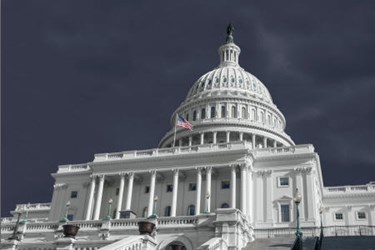Government IT News For VARs — October 15, 2014

By Christine Kern, contributing writer

In news this week, the White House is asking for advice on privacy technology, tech execs warn of surveillance’s negative effects, and new guidance allows the Department of Homeland Security (DHS) to conduct regular scans of civilian networks, and technology is being drafted into the war on Ebola.
White House Asks For Help To Assess Privacy Technology Research
The e-CommerceTimes reports that, in order to establish some control and consistency over technology initiatives, The White House has initiated a project intended to assess federal research in privacy technology. As part of that move is seeking input from the private sector, as government agencies, and other interested parties. The initiative covers not only in-house research by federal agencies, but also research conducted by federal contractors or recipients of federal grants, and has a deadline of Oct 17. ITIF's Daniel Castro’s noted, “Coordinating research investment in privacy-enhancing technologies can help ensure that the most pressing challenges are addressed and that underfunded problems are not overlooked.”
Concerns About Impact Of NSA Surveillance — Include Potential U.S. Cloud Services Loss Of Market Share
According to a roundtable panel held by Senate Finance Chairman Ron Wyden, the widespread surveillance of communications worldwide is poised to have a huge impact on the American high-tech industry. As the Ecommerce Times reported, this surveillance has caused a lack of trust between the United States and much of the rest of the world, and a recent study suggests that U.S.-based cloud services are poised to lose up to one-fifth of their market share as a result.
EFF Raises Alarm Over ComputerCOP Vulnerability To Hackers
The Electronic Frontier Foundation (EFF) raised concerns over ComputerCOP software, according to the e-Commerce Times The software has been touted by law enforcement as a parental monitoring application. The problem, EFF says, is that it includes a keylogger that could expose personal data by transmitting keystrokes to third-party servers without encryption, leaving anyone who uses the computer exposed to predators and hackers.
New OMB Guidance Empowers DHS To Scan Civilian Networks Regularly
According to FedTech Magazine, the Office of Management and Budget (OMB) released guidance last week that gives DHS the authority to scan unclassified civilian systems and addresses for cyber threats, in part due to the agency’s recent inability to quickly respond to malware attacks like Heartbleed and Shellshock. The guidance is significant because it “establishes a new process for DHS to conduct regular and proactive scans of federal civilian agency networks to enable faster and more comprehensive responses to major cybersecurity vulnerabilities and incidents,” according to Beth Cobert, OMB’s deputy director for management.
How Technology Is Combatting The Ebola Outbreak
As Fed Tech Magazine reveals, technology is playing a central role in the fight against the most recent Ebola epidemic with a range of technology including body sensors, broadband communications, customized tablets, and Big Data capabilities. This also includes new lightweight protective gear worn by healthcare workers on the front lines. Social media is also being incorporated to alert the public to dangers and collect health data.
For more news and insights, visit BSMinfo’s Government IT Resource Center.
